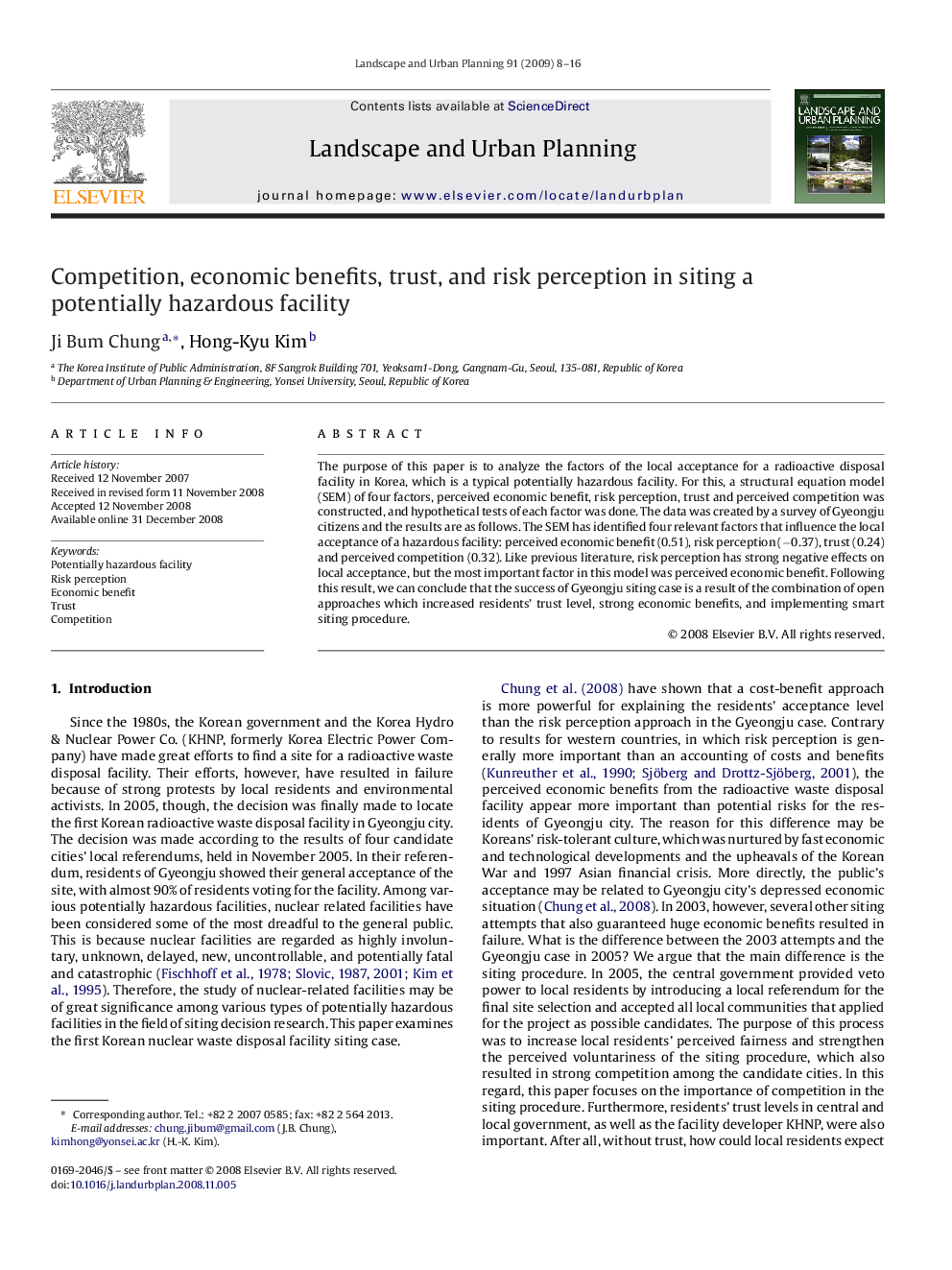| Article ID | Journal | Published Year | Pages | File Type |
|---|---|---|---|---|
| 1050288 | Landscape and Urban Planning | 2009 | 9 Pages |
The purpose of this paper is to analyze the factors of the local acceptance for a radioactive disposal facility in Korea, which is a typical potentially hazardous facility. For this, a structural equation model (SEM) of four factors, perceived economic benefit, risk perception, trust and perceived competition was constructed, and hypothetical tests of each factor was done. The data was created by a survey of Gyeongju citizens and the results are as follows. The SEM has identified four relevant factors that influence the local acceptance of a hazardous facility: perceived economic benefit (0.51), risk perception (−0.37), trust (0.24) and perceived competition (0.32). Like previous literature, risk perception has strong negative effects on local acceptance, but the most important factor in this model was perceived economic benefit. Following this result, we can conclude that the success of Gyeongju siting case is a result of the combination of open approaches which increased residents’ trust level, strong economic benefits, and implementing smart siting procedure.
